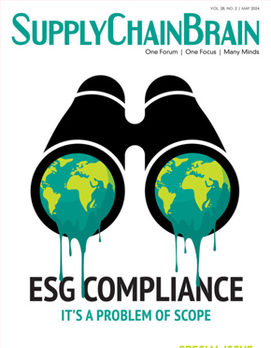
The recent announcement by Ford Motor Co. that it was planning to develop and produce at least some of its own semiconductor chips signals a sharp reversal of a decades-long practice.
For many years, original equipment manufacturers have outsourced the production of key components to independent suppliers. But the severe shortage of microchips is causing Ford and other OEMs to upend conventional wisdom. Indeed, given the impact that the unavailability of those processors has had on the automotive and high-tech sectors, they have no choice but to act.
Ford announced last month that it was entering into a strategic agreement with GlobalFoundries, Inc., a U.S.-headquartered chipmaker, to create a dedicated supply of chips for its cars. General Motors has also said it wants to source semiconductor production in North America, in partnership with multiple manufacturers.
The big automakers are only the latest major OEMs to pursue in-house production of the precious chips in response to the current shortfall. High-tech giants such as Apple, Samsung and Google are among those to have already have taken steps in that direction. (Apple began shifting away from a dependence on Intel chips in favor of its own processors more than a year ago.)
“It’s absolutely happening now,” says David Hall, director of marketing for semiconductors and electronics with NI (formerly National Instruments Corp.), a major player in semiconductor testing. “There are a fair number of well-documented examples.”
In most if not all of those cases, the transition to in-house production will likely be achieved through acquisition of an existing chip maker. The cost of creating a chip fabrication facility from scratch has been estimated at as much as $4 billion. (That’s also the reason why established producers are hesitant to build new plants in response to the current shortage.) Another option is to conduct in-house design of chips specifically tailored to the needs of OEMs, which would continue to outsource actual production to the usual major players — employing the so-called fabless model.
Either way, what’s likely to change for OEMs is “the assumption that you can get a chip from the fab on demand, whenever you need it,” says Hall. “That’s the way the world has worked for 30 years. But you no longer have the guarantee of supply you once did.”
Beyond the immediate shortage of chips, OEMs are motivated to take control of design and development because of the proliferation of product that’s specific to each industry’s needs. Amazon.com, for one, is reportedly developing a chip for cloud-based server applications — essential to the company’s lucrative Amazon Web Services arm. In addition to acquiring advanced functionality, Hall says, Amazon could save millions of dollars by not outsourcing the task to a major chip producer like Intel.
Yet another rationale for change is the need to “control your own destiny and streamline time to market,” says Hall. End customers are increasingly dictating testing requirements to chipmakers, who can’t satisfy their demands with off-the-shelf product.
“The notion that chips may have only one customer is a new dynamic,” notes Hall. “It signals that it’s cost-effective to build a chip if you can survive selling it [that way].” The economics become more attractive, and design theoretically speeds up, when the need for back-and-forth processes with outside producers is minimized if not eliminated.
It has been widely reported that auto manufacturers first got hit by the chip shortage when fabs shifted production to meet the needs of video game makers and other high-tech consumer devices. (When faced with a slump in cars sales in the early days of the COVID-19 pandemic, much of the auto industry cut back sharply on chip orders, a move it soon came to regret when sales unexpectedly rebounded.) But the fabs themselves have been dealing with their own production constraints, in the form of raw-materials shortages, staffing problems due to the pandemic, and general supply chain congestion.
The decision on whether or not to invest in in-house chip development entails a certain amount of risk either way. Hall says OEMs need to consider both time to market and the ability to scale production to profitable levels.
“If the product you’re working on has a specific market-window requirement, where if you’re late it kills you, that’s one factor encouraging you to do development in-house,” he says. A second consideration is whether there might yet be off-the-shelf chip technology that meets the OEM’s needs. And a third is pure economics, “based on your personal commitment to what you’re going to spend if you buy something off the shelf, versus doing it yourself.”







